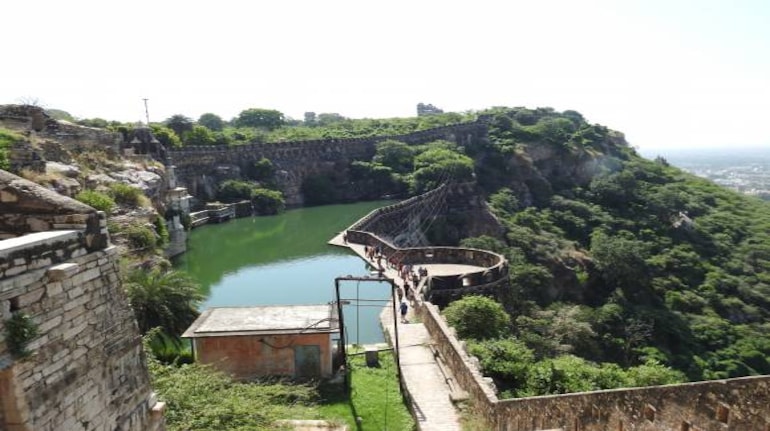



NTPC Ltd, India’s largest electricity producer, has identified at least nine states where it plans to build pumped hydro storage units with a total installed capacity of 14,000 MW (14 GW), senior officials of the Central Public Sector Undertaking (CPSU) told Moneycontrol.
“We have around 14,000 MW of pump storage capacity ready to be signed with the state governments at different stages, and we will immediately start building them once the approvals are received from the respective administrations,” said a senior NTPC official requesting anonymity.
Of the 14,000 MW, nearly 5,500 MW projects are suggested by the central government to NTPC, while the CPSU has identified the remaining 8,500 MW of PSP capacity across different states. These include Gujarat, Himachal Pradesh, Meghalaya, Chhattisgarh and Uttar Pradesh. The states identified by the government for NTPC include Maharashtra, Andhra Pradesh, Tamil Nadu and Karnataka.
What are pumped storage projects?Pumped storage projects, or PSPs, are hydroelectric power generation systems that use two water reservoirs at different elevations. They act like giant batteries for electricity storage, which is important to get round-the-clock power since solar and wind energy are intermittent. During periods of low electricity demand, excess electricity from the grid is used to pump water from the lower reservoir to the upper reservoir. When the electricity demand increases, the stored water is released back to the lower reservoir, passing through turbines to generate electricity.
Since 2022, PSPs have found their way into the power agenda of the central and state governments, as these can potentially bridge the gap in peak demand and supply and offer stability to the power grid. India has an estimated potential of 103 GW of PSP capacity, and the state governments are gearing up to attract developers and generation companies to set up these projects. The Central Electricity Authority (CEA) has also shortened the detailed project report (DPR) approval time for PSPs from 90 days to 50 days. The CEA is currently reviewing PSP proposals totalling at least 30,000 MW (30 MW) from different companies and state governments.
On February 16, the government released its long-awaited draft guidelines for setting up PSPs and exempted off-river plants from having to conduct mandatory environmental impact assessments (EIA). Moneycontrol was the first to report about the government's plan on January 30.
Pumped storage tariffsAccording to the latest estimates by NTPC, the tariff purely for power storage through the PSP would range between Rs 3.5 per unit and Rs 4 per unit, depending on the type of project and its location.
“However, once we include the purchase price adder, the total price of PSP storage would range between Rs 7.25 and Rs 8.25 per unit,” the official said.
Despite the high rates, which are still lower compared to battery energy storage systems (BESS), PSPs are being favoured by the Indian government primarily because they do not require the mining of critical minerals such as cobalt and lithium, the majority of which are currently being imported from China. PSPs require a high capital expenditure, but in the long run, they are cost and space-effective.
1st unit of THDC’s 1000 MW PSP by FebruaryNTPC’s first PSP to start operations will be the 1,000 MW plant being built on the river Bhagirathi in Uttarakhand.
NTPC has a 74.5 percent stake in THDC India Ltd while the Uttar Pradesh government holds the remaining 25.5 percent.
“There were some last-moment surprises at the tail-end region of the THDC 1,000 MW PSP. But now the issues have been resolved, and we expect the first unit of the pumped storage project to come on stream by January or at the latest by February. Then, progressively, in three months, the entire PSP will be commissioned,” a second senior official said, requesting anonymity.
Discover the latest Business News, Sensex, and Nifty updates. Obtain Personal Finance insights, tax queries, and expert opinions on Moneycontrol or download the Moneycontrol App to stay updated!
Find the best of Al News in one place, specially curated for you every weekend.
Stay on top of the latest tech trends and biggest startup news.